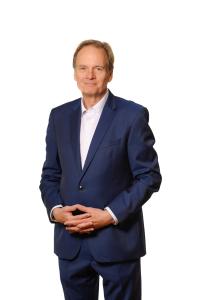By Franziska Krämer
Nowadays, information and claims are often adopted unchecked and distributed quickly – particularly via social media. For many, including journalists, it often seems easier – and more time-saving – to adopt statements circulating in public without critically questioning their content. Untrue claims and false information can, however, cause great damage as decisions and opinions should be made on the basis of true information.
On the African continent there has been a surge in the number of journalism-related organisations which check information and claims circulating in public – doing so-called ‘fact-checking’. The first independent African fact-checking organisation was Africa Check, founded in 2012 in Johannesburg. The non-profit organisation has expanded rapidly and now has offices in Kenya, Nigeria, Senegal and South Africa where it works to ensure debates in society and in the media are based on reliable facts.
With the help of Africa Check and a fellowship partnership with KAS Media Africa, more and more fact-checking organisations are emerging in various African countries. A gathering of African fact-checkers was first convened in November 2017 to form an open network. The recent Africa Facts 2 in Cape Town was its long-awaited follow-up. KAS Media Africa assisted to enable four journalists from Botswana, Kenya, Namibia and Senegal to participate in the regional conference as well as Global Fact 6. Themed "Building non-partisan fact-checking on the continent", the Africa Facts conference was attended by 30 participants from 16 different organisations exchanging experiences, challenges and lessons from their work.
Ebele Oputa from the Nigerian fact-checking organisation Dubawa spoke in her session on the question of how to choose what to fact-check. Dubawa's fact-checkers examine any information that is going viral or that could have serious consequences. Oputa cited an example of a fact-check on a claim made by the Nigerian Minister of Agriculture and Rural Development, where he said that Thailand blamed Nigeria for the rise of the country's unemployment rate as Nigeria had reduced its rice imports from Thailand. Ogbeh's allegation spread rapidly - but turned out to be incorrect according to Dubawa’s fact-check.
„Sometimes we decide to even still fact-check things that are not viral, which do not to seem to affect national security but still provide new information for the public,” she says. To emphasize this, Oputa mentioned a fact check in which Dubawa found out that the Ankara material, from which many clothes are made in Nigeria, is not indigenous to the country, contrary to the assumptions of many.
Fact-checked information includes claims and rumours, whether they are spread by text, photo or video, explained Sophie Nicholson, Deputy Head of Fact-checking and Social Media Department at the AFP news agency. She gave the participants tips on how to present articles to the audience on the facts they had checked. She cited objectivity and transparency as crucial criteria. "It is important that everyone who reads the fact-check can follow the same process," she said.
Non-profit fact-checking organisations are supported by various partners. And with the money, effort and energy invested in fact-checking the question often arises as to whether the work has an impact, says Nicola Theunissen, Impact Manager at Africa Check, where she deals with the illusive question of how the effect of fact-checking can be measured. There is no easy answer to this question as there is no universal instrument for measuring the effect of fact-checking, she says. "I think as a continent and as African fact-checkers, we need to work on a universal framework to develop impact tracking," Theunissen said. Today, it was more important that the work of fact-checking makes a difference than the size of the audience.
As an example of an indicator for impact, Theunissen showed a speech by South Africa's current Transport Minister Fikile Mbalula in which he referred positively to research by Africa Check on the ANC's manifesto before the South African elections in 2019. “We considered this as quite impactful because it’s an indicator that we improved the quality of public debate when a politician references us in public,” said Theunissen.
At the conference, however, it was not just a question of the process of fact-checking. The aim was also to discuss financing strategies and to strengthen the network of African fact-checkers. In a group discussion, the participants debated what an Africa Facts network could look like and how they could support each other in their work. Eric Mugendi from the Kenya-based PesaCheck and Baybars Orsek, Director of the International Fact-Checking Network (IFCN) also took the group through the process of becoming a member of the International Fact-Checking Network and what opportunities arise through the affiliation.
There is no doubt that the African fact-checkers benefitted from being able to attend the Global Fact checking summit, which was hosted on the continent for the first time and which KAS Media Africa also provided local support for. Global Fact 6 had participants from an impressive 55 countries and the community of fact-checkers are extremely generous with sharing experiences and tools, united as they are by the drive to amplify the truth and improve transparency and accountability around the globe.



